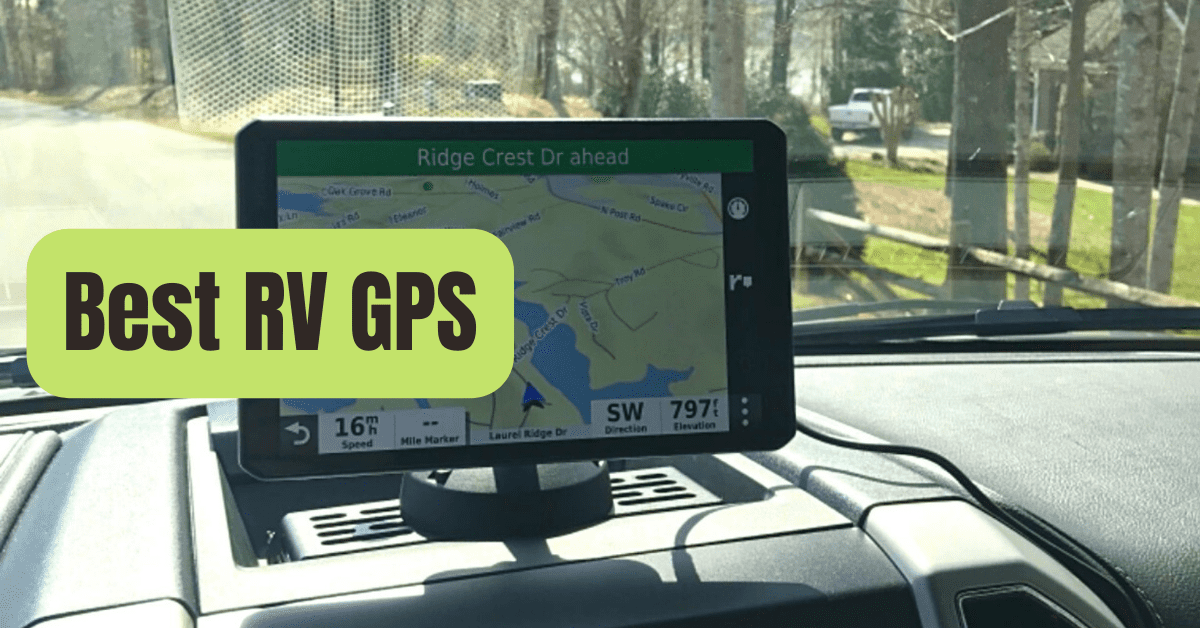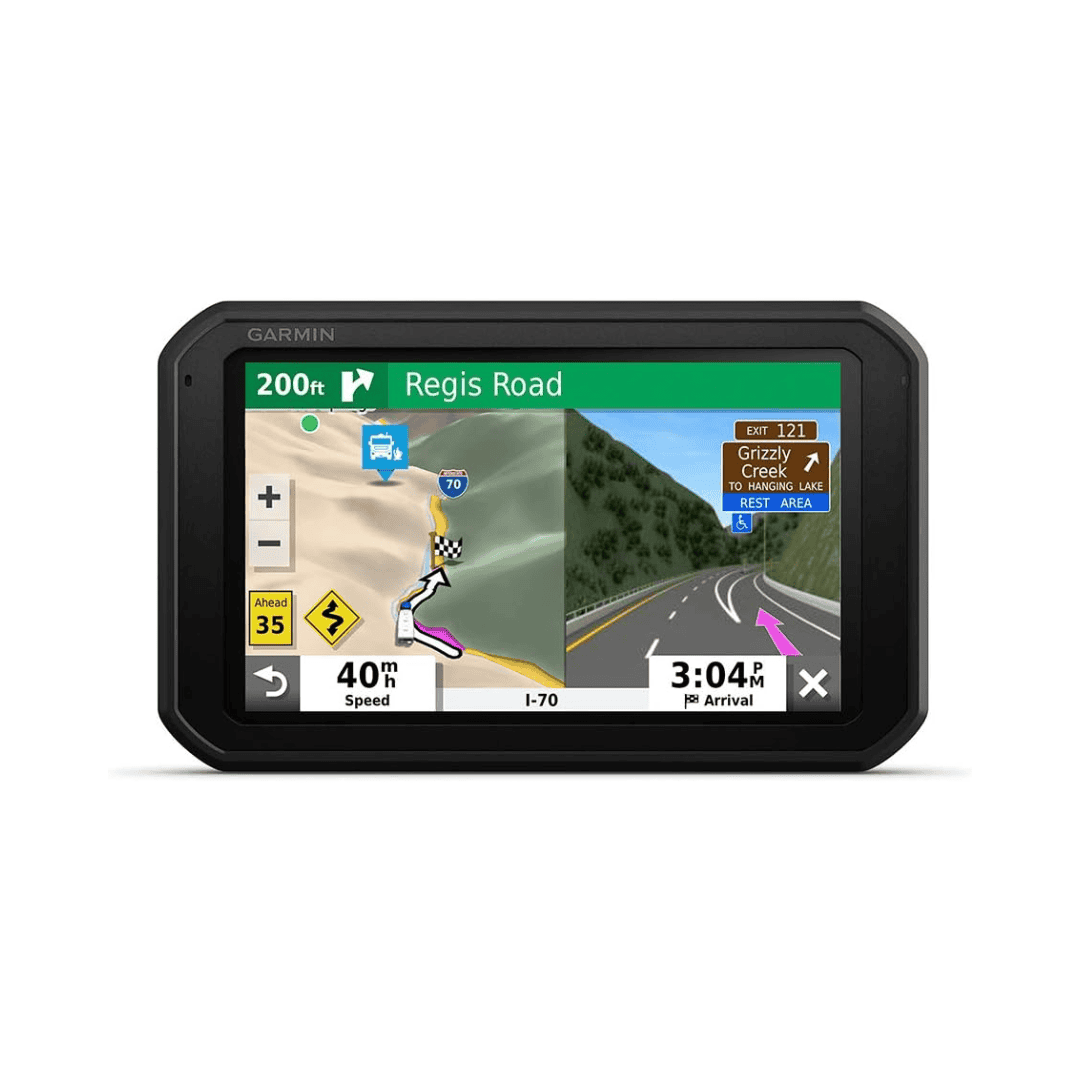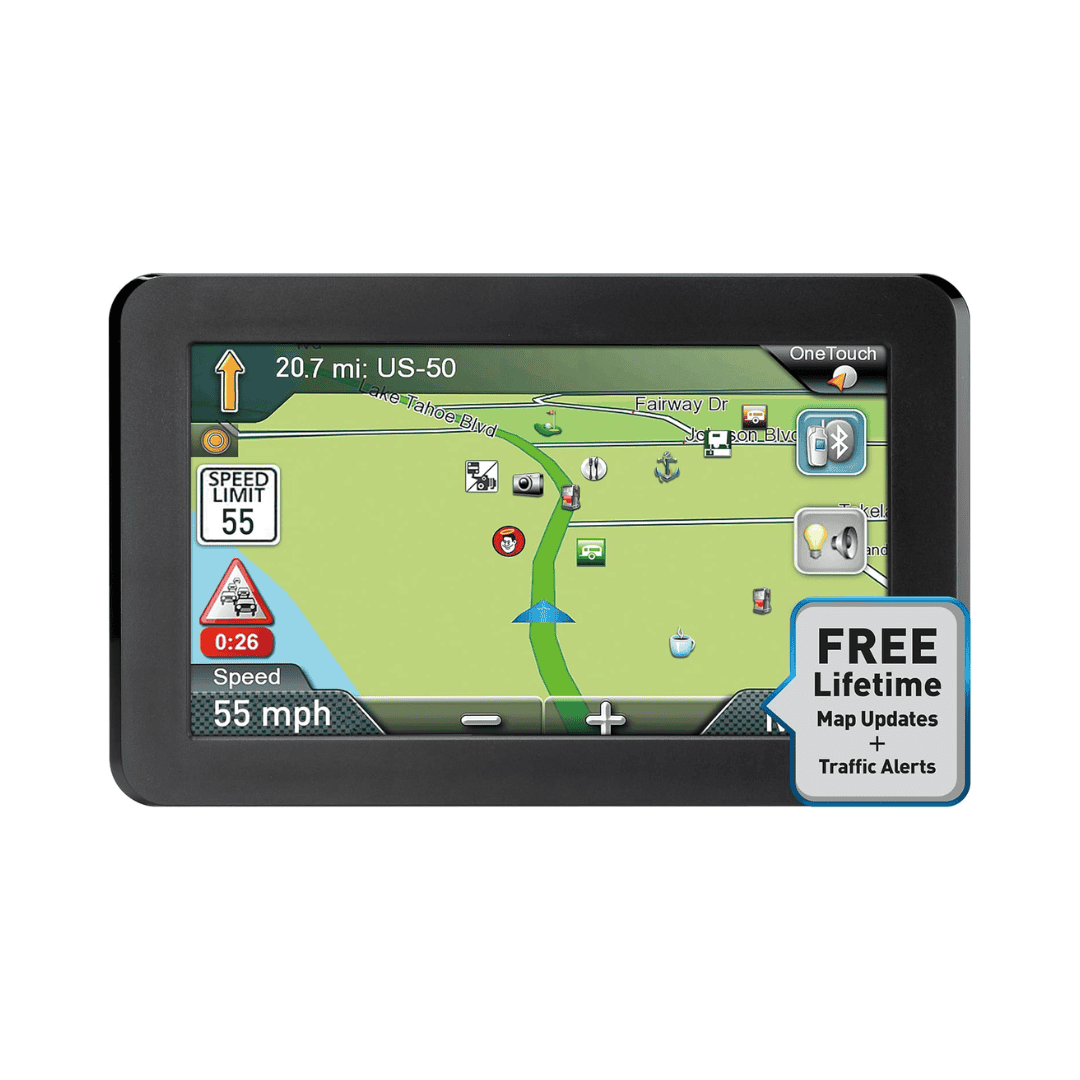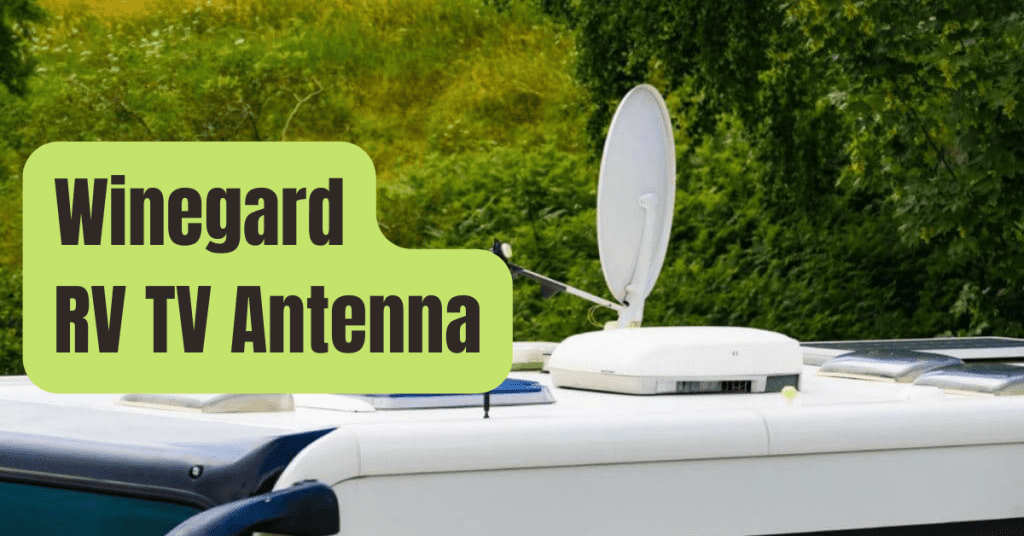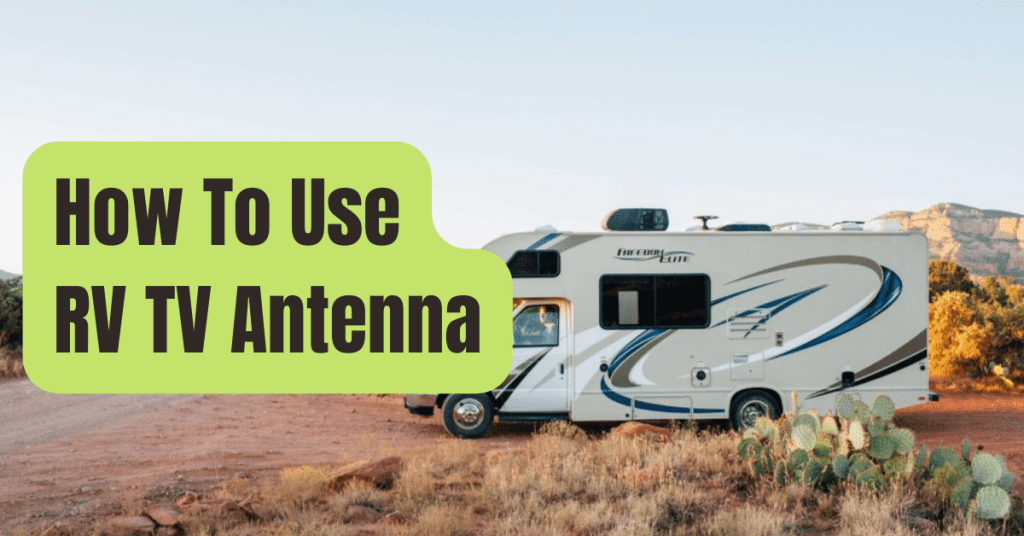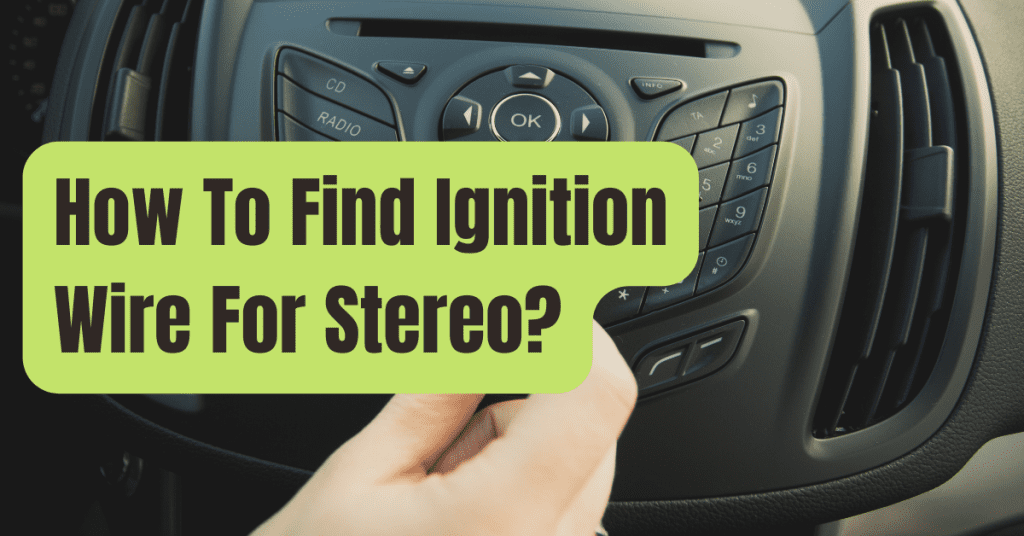The most common source of stress among couples who travel or live full-time in an RV is navigation.
Okay, this claim may not be true, but anybody who has gone long distances in an RV with a companion understands that even little navigation mistakes may have serious implications.
Since my family first started traveling in an RV, technology has gone a long way.
We utilized a nice old-fashioned atlas to plan our trips and choose prospective campsites back then.
Those old Wal-Mart atlases will always have a special place in my heart, and I still have one in my RV.
While having an atlas on available for emergency navigation is a good idea, today’s high-tech RVers depend on GPS systems that make travel considerably simpler.
A GPS device is a terrific tool for taking the worry out of getting to your next campsite or RV park, with clear displays and a variety of navigation options.
GPS devices for RVs are usually mounted on the dashboard so that the driver can view the display without taking their eyes off the road.
When they perform their job well, they will give you early warning of forthcoming turns, alert you to approaching traffic due to an accident, and offer real-time information about low-hanging bridges or other impediments that RVs should avoid.
Regrettably, not all GPS units designed for RV navigation live up to their eye-catching marketing pitch.
The difficult aspect is determining the finest GPS system made exclusively for RVers.
You don’t have to be concerned any longer since we’ve got you covered.
In this post, I’ll go through six of the finest RV GPS devices on the market that really work, as well as the greatest applications for each.
I’ll also go through a detailed GPS purchase advice, including how to figure out which model is right for you.
I’ll wrap off this essay by answering some of the most common queries concerning RV GPS systems.

In A Nutshell, Here Are Our Top Picks For The Best RV GPS Options For 2026.
Here are the top 6 Best RV GPS you can get in 2026 for road navigation so you never get lost again, even if Google Maps stops functioning.
- Best Overall: Garmin RV 785 GPS Navigator with Built-in Dash Cam
- Largest Display: Magellan RV 9365T-LMB RoadMate RV GPS Navigator
- Best Budget: Garmin RV 770 Advanced Navigation for RVs and Travel Trailers
- Best Entertainment Value: Rand McNally OverDryve 7 High-Clarity RV GPS Navigator
- Best For Roadside Assistance: TomTom VIA 1535TM Bluetooth GPS Navigator with Voice Recognition
- Best For Obstacle Avoidance: Garmin dezlCam 785 LMT-S with Built-in Dash Cam
Detailed Reviews of 6 of the Best RV GPS Units
Regardless of the vehicle you’re driving in or the terrain you’re travelling through, Garmin, Magellan, and TomTom are three of the most trusted brands in GPS navigation.
Here are six of the top RV GPS devices to choose from!
#1. Best Overall: Garmin RV 785 Advanced GPS Navigator For RVs With Built-In Dash Cam
You’ll be wishing you had invested in the Garmin RV 785 when your cheaper GPS unit leads you down a route that wasn’t designed for a vehicle the size of your RV.
This RV GPS device has a lot of useful features, including the ability to modify your route to avoid low bridges, steep inclines, and sharp bends.
When you’re driving an RV that isn’t designed for every road, this function is critical.
From the captain’s seat of your RV, you’ll be able to view the approaching turns on the display thanks to the seven-inch screen size.
You can also move between screen settings and make modifications to your route without having to stare at a small display or worry about correctly pressing small keys thanks to the high-resolution touch screen.
This device seems like the next generation of RV GPS technology as we go towards the age of smart technologies and self-driving automobiles.
It has a back-up camera that may assist you maneuver tight places, as well as lane-departure and forward-collision alerts to make your RV journeys safer.
I particularly like that if an event is detected, the built-in dashcam instantly saves video as well as GPS position and time information.
Things We Enjoy
- Custom Routing: Creates the ideal path for your RV based on your preferences.
- RV Park Directory: Provides information about RV parks and campsites in the area.
- HDPE — High-density polyethylene is a heavy-duty material that does not degrade owing to photodegradation like many other plastics. The fact that it’s blow-molded also means it’ll be more resistant to leaks.
- Make a Record of Your Drive: The built-in dash cam captures your journey and stores film automatically if it detects an accident.
- Large Screen Size: The seven-inch screen makes visual guidance simple to see.
Things We Don’t Appreciate
- Price: Because it comes from a famous GPS company and has a lot of amazing features, it’s not the cheapest device on the market.
#2. Magellan RV 9365T-LMB RoadMate 7-Inch RV GPS Navigator has the largest display.
The huge display on this RV GPS device is one of its greatest features.
The Magellan RV 9365T-LMB RoadMate is an excellent option if you want a GPS that won’t leave you perplexed when you need instructions quickly.
It enables you to put in the precise dimensions of your RV so that the routes it chooses don’t contain any impediments that would make handling a huge vehicle difficult.
Gas station locations are classified by whether they sell diesel or regular gas, the Good Sam Travel Guide and Campground Directory, a database of Sani-dump sites, and the option to record position information are among the RV-specific features of this GPS device (i.e. longitude and latitude).
It also connects to your smartphone using Bluetooth technology, allowing you to communicate hands-free while driving.
The timing of the instructions is something that has always concerned me about GPS equipment.
Some people only inform you the next step after it’s too late, forcing you to take an unneeded detour or a complete U-turn.
This unit, on the other hand, allows you to see the following two turns on your path as they approach, allowing you to prepare ahead for your next move.
Things We Enjoy
- Dump Stations: Provides a list of dump stations where you may empty your RV’s grey and black water tanks.
- Find public and private Good Sam RV Parks that fit your precise requirements in the Good Sam Campground Directory.
- Day and Night View Display: Adjusts the brightness of the screen to the outside environment.
Things We Don’t Appreciate
- Map Update Issues: Many people have complained about having trouble updating maps on this device.
- Customer Service: According to user evaluations, Magellan’s customer service isn’t the greatest.
#3. Best Budget: Garmin RV 770 NA LMT-S, Advanced Navigation for RVs and Towable Trailers
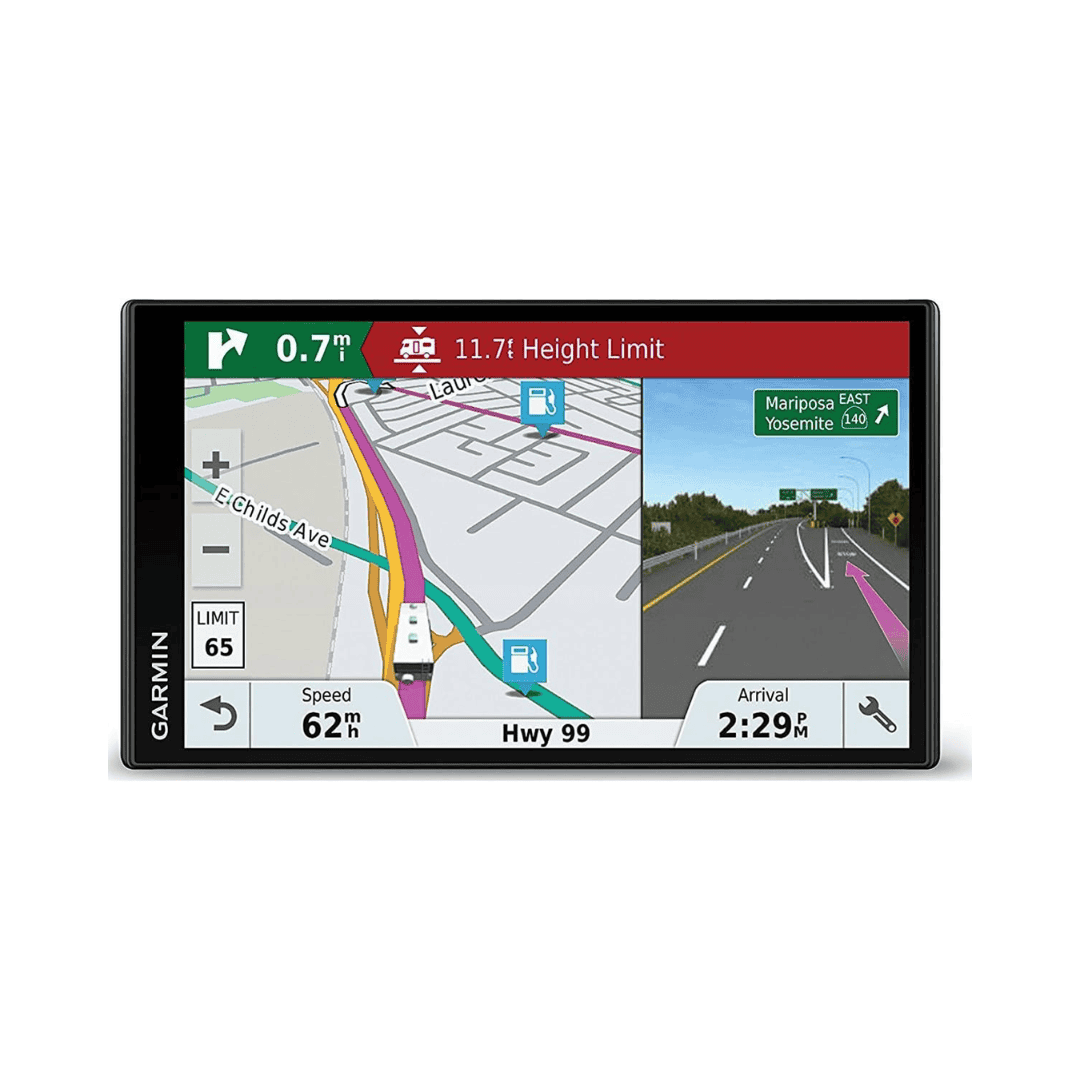
When it comes to GPS units for your RV, you get what you pay for, but if you’re looking for a budget-friendly device with all the basic functions, the Garmin RV 770 is a great choice.
Despite the reduced cost of this type, you can still design your route to avoid routes that aren’t always the simplest to handle in a big rig.
I’ve worked with GPS devices in the past that were quite difficult to use.
The user interface was just not intuitive or user-friendly.
That’s why I enjoy how this GPS connects to your smartphone and gives you access to information via an interface you’re probably already familiar with.
The Smartphone connection app on the device enables you to get real-time traffic updates, basic weather briefings, and other important trip information.
When looking for a suitable campsite to park your RV for a few days, it’s occasionally good to phone ahead and chat with someone on the ground.
That’s how we used to book all of our campsites before the Internet made things so simple.
I still value chatting to a real person about the sights and neighboring attractions, which is why I like that this GPS is Bluetooth compatible and has additional hands-free capabilities like voice-activated navigation.
The LiveTrack function of this GPS may be appealing to your parents or friends.
This is similar to the ‘Find Your Friends’ function found on most modern iPhones.
Of course, you have complete control over the settings, but you will be able to share your whereabouts with friends and family for safety reasons as well as to motivate them to get off the sofa and join you on your next trip.
Things We Enjoy
- Smartphone Link: Get real-time traffic updates and basic weather forecasts on your smartphone.
- Wi-Fi built-in: For quick map and software upgrades.
- Allows you to share your whereabouts with friends and family via the LiveTrack feature.
Things We Don’t Appreciate
- Inconsistencies on the map: Some users have reported that the highway information on the map is outdated.
- Only one Bluetooth connection is possible: You must choose between connecting the GPS to your RV or your smartphone; it is not possible to connect to both.
#4. Best Entertainment Value: Rand McNally OverDryve 7 High-Clarity RV GPS Navigator
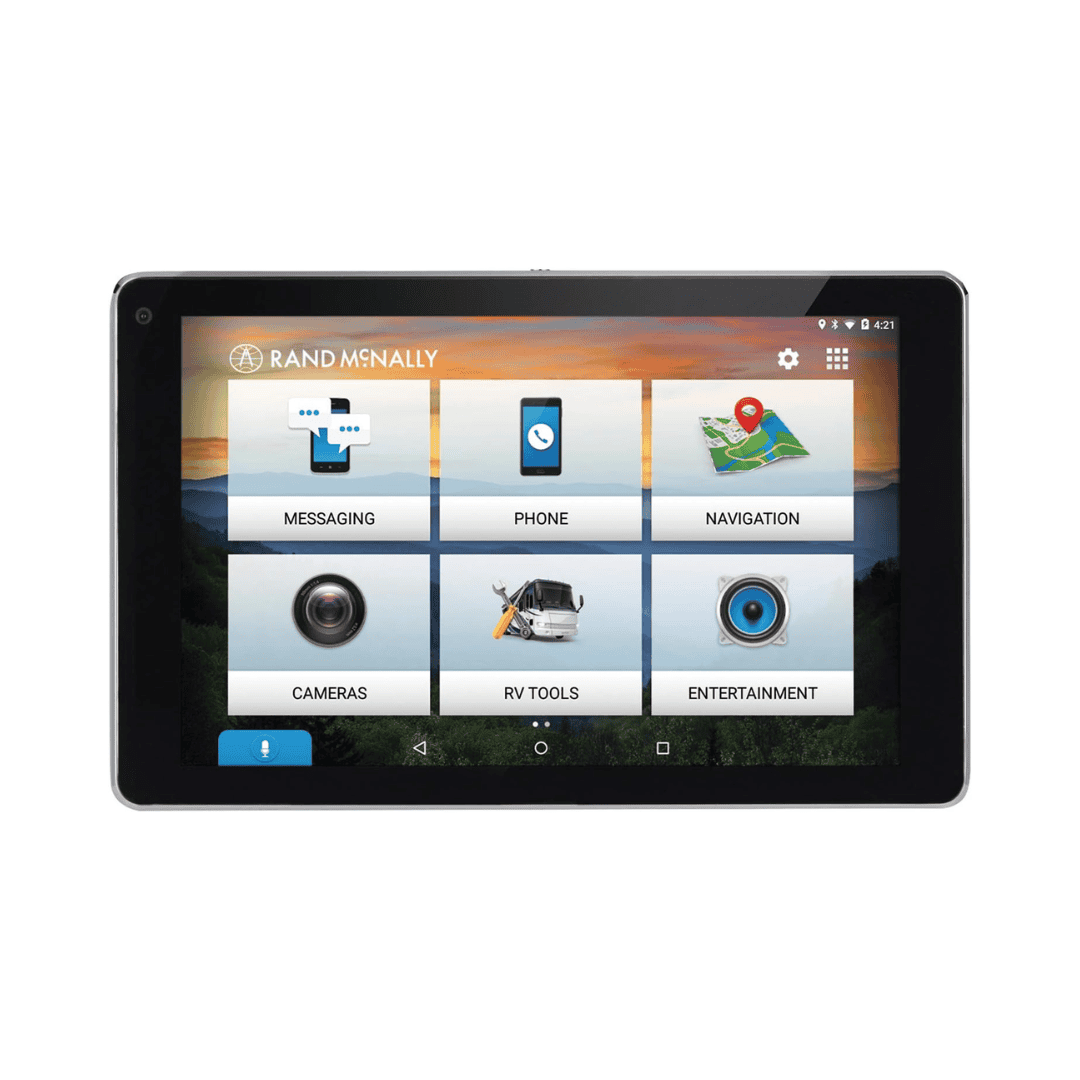
There is perhaps no better model for RV owners looking for a GPS that will get them to their destination while also allowing them to have fun along the road than the Rand McNally OverDryve 7.
This GPS lets you to download your favorite applications for streaming music and podcasts while traveling, allowing you to rock out or remain informed.
If you’re really into social networking, you can even keep track of what your followers are up to directly from your GPS device.
This is another type with a wide, seven-inch screen, so you won’t have to take your gaze away from the road for long while verifying your next turn or exit.
With the unit’s voice-activated navigation capability, you may even adjust your route by speaking straight to it.
The built-in microphone also makes it simple to make a phone call as you approach your destination to inform your friends or grandchildren that you’ve arrived.
This GPS has a built-in dashcam that will capture video in case you’re in an unfortunate accident and need to substantiate your tale.
This is also a terrific option for putting together some interesting timelapse films of your RV travels.
This GPS’s WiFi-enabled functions also let you check area weather, determine which future station has the cheapest gas pricing, and see live traffic to plan detours or route diversions.
Things We Enjoy
- Quick Views: Allows you to plan ahead by seeing future intersections and exits.
- All of the advantages of a conventional atlas are condensed into a user-friendly digital interface in the Digital Road Atlas.
- Download your favorite applications directly to your GPS to listen to music or listen to podcasts while driving.
Things We Don’t Appreciate
- Unlicensed Dealers to Avoid: Some consumers purchased this GPS equipment from unauthorized dealers, which meant that warranties were not honored when components failed or repairs were required.
- Deficiencies in programming: Some users expressed dissatisfaction with their inability to construct routes to avoid tolls.
#5. For Roadside Assistance: TomTom VIA 1535TM Bluetooth GPS Navigator with Voice Recognition
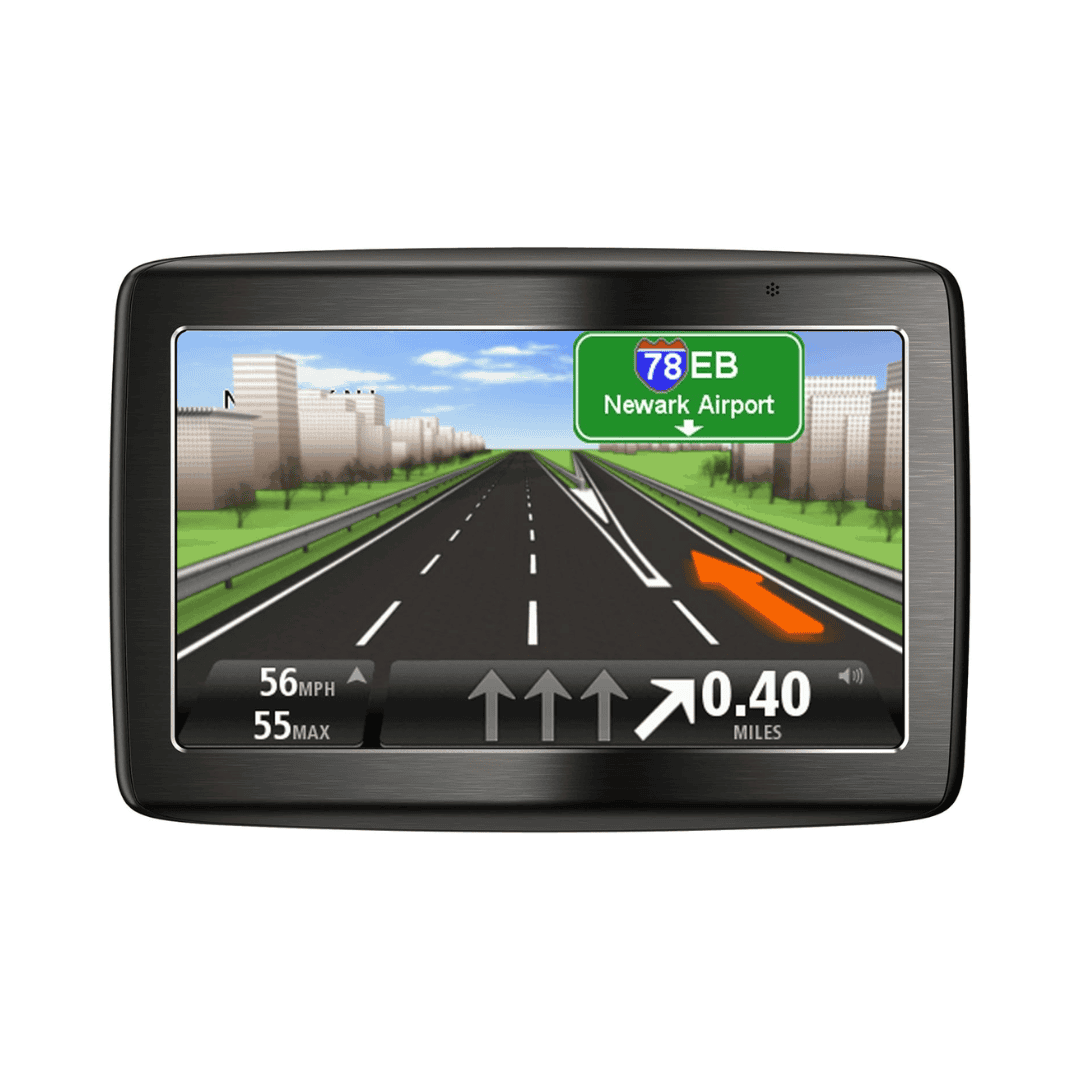
Even though we plan our journeys in advance and factor in probable snags, the unexpected always happens.
Occasionally, this occurs in less-than-ideal settings, leaving us stuck until aid arrives.
The TomTom Via 1535TM is the GPS device to have on your side when things don’t go as planned.
The TomTom VIA has the capacity to cling to the inside of your windscreen or to the dashboard directly in front of the captain’s chair.
Just make sure it doesn’t get in the way of your driving! The unit’s pre-installed maps may need upgrades, which some users have experienced requiring the use of an extra SD card to download and install.
If you decide to buy this GPS device, keep this in mind.
Because of the GPS’s IQ Routes capabilities, you’ll have the most exact estimations for when you’ll arrive at your next location.
As someone who despises making people wait, I believe this is a critical function for being able to provide an exact ETA to anybody who will be meeting you at your next stop.
I really enjoy how this GPS offers a split-screen mode so you can plan your next move while keeping an eye on your present position.
Things We Enjoy
- Roadside Assistance: Makes it simple to contact for help if your vehicle breaks down.
- IQ Routes: TomTom devices come with the “world’s largest database of actual journey timings,” allowing you to predict your arrival at the next campsite with accuracy.
- Split Screen View: Allows you to view ahead to the next junction or exit while maintaining your present position.
Things We Don’t Appreciate
- Map Update Issues: Some customers complained that they had to buy and enter an extra micro SD card before they could update their maps.
- Prompt Support: According to user reviews, some users have difficulty obtaining timely replies from the TomTom support service.
#6. Best For Obstacle Avoidance: Garmin dezlCam 785 LMT-S Truck Navigator RV GPS
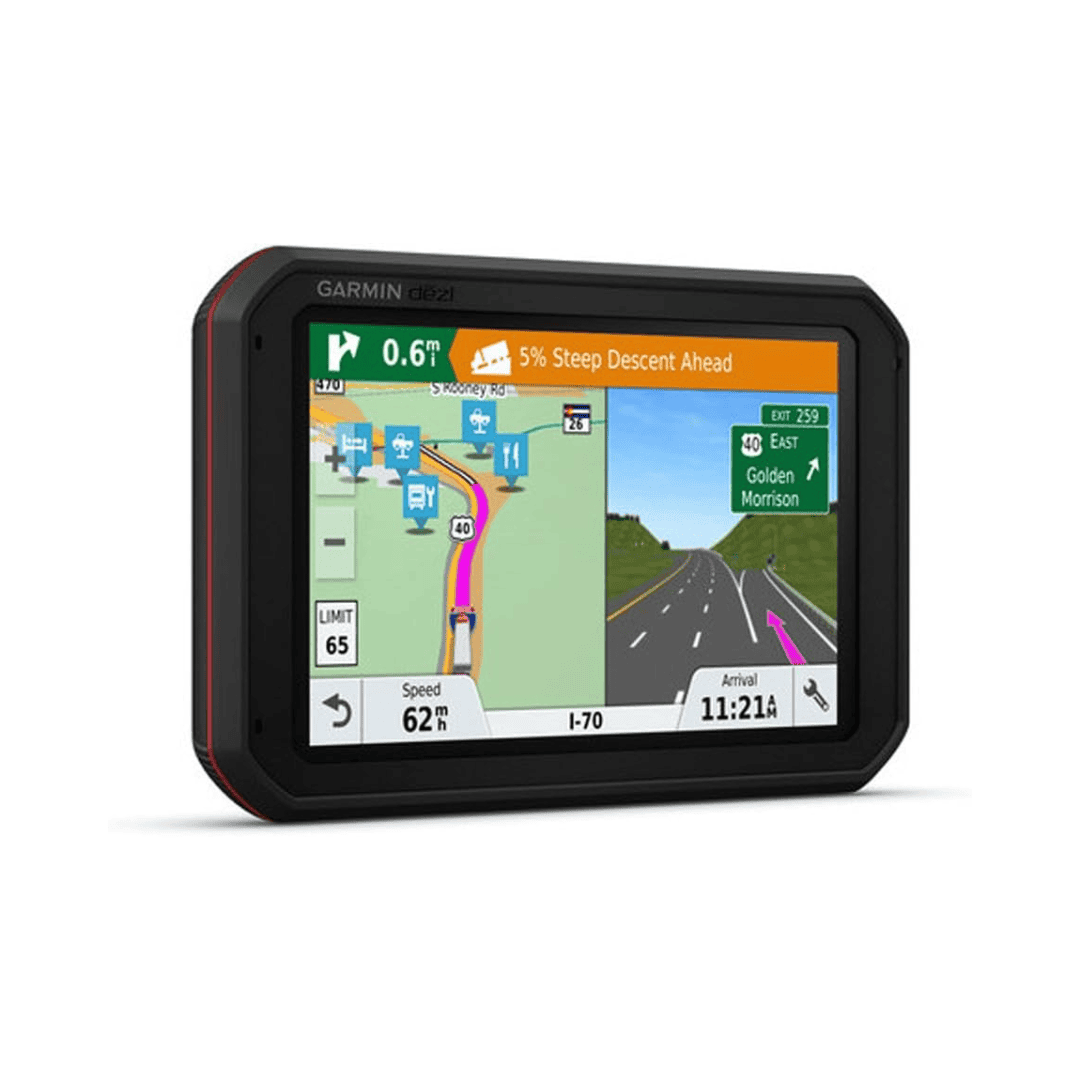
Check out the features of the Garmin dezlCam 785 if you’re seeking for a GPS device that can assist you avoid obstacles for a smooth trip experience.
Other GPS systems may force you to retrace for hours because they were unaware of a low bridge on the rural road you were on.
This device, on the other hand, gives you notifications so you may avoid obstructions and save time.
When you spend a lot of time driving an RV, it’s easy to get complacent.
This is exceedingly risky in a vehicle that is maybe 30 or 40 feet long.
This is why so many smart automobiles now warn you when you approach another vehicle too rapidly or leave your lane.
This GPS, when integrated with your RV, can alert you if you’re drifting out of your lane or approaching a car or item in front of your RV too rapidly.
The device may also be installed in your RV, and you won’t have to remove it to update the maps.
It’s a WiFi-enabled GPS, so updates may be downloaded without having to connect the device to a computer.
You may also use this GPS to make hands-free phone calls thanks to Bluetooth connection.
It also provides critical live services like as weather updates and traffic warnings, which make RV travel much easier.
Things We Enjoy
- Road Alerts: Notifies you of imminent bridge heights, steep gradients, and other hazards.
- Forward-collision and lane-departure alerts are among the driver awareness features.
- Advanced Rest Stop Planning: Allows you to schedule rest stops or petrol stations based on preferred amenities.
- Dash Cam Eyewitness: Records video in front of your RV and stores it if an event is spotted.
Things We Don’t Appreciate
- Price: While it isn’t the cheapest device on the market, it is jam-packed with helpful features!
- Long Map Download Times: When attempting to update maps, some users experienced long download times, which is most likely due to the strength of the Internet connection you’re using at the time of the download attempt.
What Factors Did We Consider When Choosing The Best RV GPS Navigator?
Now is the time to learn all there is to know about GPS devices in order to make the best option possible for your requirements.
Although the units above aren’t that far off, a real side-by-side comparison should take into consideration all of the aspects discussed in this purchasing guide.
#1. Types of GPS
To begin, it’s crucial to recognize that there are various distinct kinds of GPS systems, each with its own set of advantages and disadvantages.
We’ll talk about three different sorts of GPS systems in this article: street navigation systems, sports GPS systems, and portable GPS systems.
GPS Navigation Systems for the Street
For the purpose of clarity, all of the GPS units mentioned in this article belong within this category.
This is the sort of GPS device that attaches on your RV’s dashboard or is already installed into newer, more costly RVs in certain circumstances.
A street navigation GPS system may give you turn-by-turn instructions, estimate your arrival time at your next destination, display your current speed, and measure the distance you’ve driven thus far on your journey.
This sort of GPS device comes preloaded with maps for your area, and most of them can be upgraded to incorporate foreign maps as well.
Most feature a number of key landmarks or waypoints, such as petrol stations, police departments, hospitals, airports, and other areas of interest, that might be useful in your travels.
The ability to set a street navigation system with your chosen path is its most significant benefit.
Many will provide intriguing facts about several locales along the trip.
The most powerful GPS systems in this category may link directly to your smartphone, allowing you to set routes or check directions using a more familiar user interface.
GPS Tracking for Sports
This sort of GPS device is more usually associated with sports than with RV travel.
Many of these units are designed to withstand sea conditions, which is why many long-distance sailing teams rely on them.
While these systems are more robust and transportable than those found in most RVs, they have a considerably smaller screen, making it difficult to see instructions while driving down the highway.
GPS Handheld Devices
Geocaching, long-distance trekking, and navigating on foot in new areas are all common uses for handheld GPS devices.
A portable GPS, in addition to a dash-mounted GPS device, may be a useful tool for RVers who want to explore trails and wilderness areas after they’ve settled into a new park.
#2. Requirements for Setup
Multiple mounting options are available on the finest RV GPS devices.
This provides you the flexibility to install your unit wherever it makes the most sense for your RV.
A suction cup or a windshield mount are two typical installation options.
Before making a purchase, make sure you’re satisfied with the installation requirements of the GPS device you’re considering.
You should also make sure that the GPS device you purchase has a sturdy, inclined arm, in addition to looking at the mounting alternatives.
As you bounce down the road, this will prohibit the GPS device from altering places.
You won’t be able to look down at the visual display to check the voice instructions you’re getting if your GPS isn’t firmly fastened in place.
Many RV owners with GPS expertise will advise you to avoid purchasing a model with a gooseneck arm.
These types have a tendency to vibrate in sync with the movement of your car.
This makes it impossible to view the visual display and may also harm the machine inside.
When it comes to picking a GPS device for your RV, ease of installation is critical since there are units that just snap or slide into place, allowing you to focus on planning your next RV journey.
#3. Connectivity through WiFi and Bluetooth
Most new GPS devices include Bluetooth technology that allows you to connect to your RV or smartphone.
This is a really useful feature since it allows you to interact with your GPS in a more efficient manner.
This includes making phone calls directly via your RV’s speakers and the GPS interface, changing your route using voice-activated navigation, and downloading a new podcast to listen to while driving.
You’ll also have access to real-time traffic updates and up-to-date weather information for the place you’re visiting if you have a GPS that can connect to the Internet.
These are useful for smooth RV travel since having more information helps you to change your itineraries, allowing you to spend less time on the road and more time enjoying your locations.
#4. Display Dimensions
It’s hardly rocket science to determine the size of a screen.
When you should primarily depend on aural signals from your GPS while driving (to keep your eyes on the road), having a visual confirmation of what you’re hearing is beneficial.
With a bigger GPS screen, it will be simpler to confirm your next turn with a fast scan.
While it may seem that a bigger screen is distracting, most users find the reverse to be true.
It’s simpler to acquire the information you need with a bigger screen since your eyes don’t have to linger as long.
When choosing a GPS device for your RV, be sure it has a minimum screen size of five inches across.
Many GPS users prefer the benefits of a GPS with a screen that is seven inches across.
These variants are a little more costly, but they make the unit’s touch screen functions considerably simpler to use.
If you do choose a model with a bigger screen, be sure it is mounted in a manner that does not obstruct your view of the road.
#5. User Interface (UX)
The user interface of a GPS controls how you interact with it, whether you’re driving or stopped.
When comparing GPS units, seek for a straightforward, familiar user interface since many of us are accustomed to current technologies that are extremely easy to use.
In my opinion, a touch screen capability is a must-have since most of the gadgets we use nowadays work in this manner.
When you’re driving, though, voice instructions are the most convenient method to communicate with a GPS.
#6. Convenience
The majority of RV GPS systems are designed to be permanently installed in your RV.
Some users, on the other hand, want a unit that they can take apart and carry with them after they’ve parked their RV and are ready to hit the trails.
While full-time RVers are less likely to do this, it’s worth mentioning that you should purchase a GPS device that can go with you and be used in a variety of situations if that’s your desire.
#7. Data Entry Techniques
If your GPS only supports data entry by hand, you’ll have to plan ahead unless you always have a co-pilot on hand to enter the address of your next location.
To put it another way, it’s always a good idea to keep your hands on the wheel and your eyes on the road while entering your next location into your GPS.
Many contemporary GPS systems, fortunately, provide voice-activated navigation.
This, I believe, is a necessary function since, let’s face it, I don’t always plan ahead enough to enter the required address into my GPS before the need gets more pressing.
Trying to input an address manually while moving lanes and worrying about missing your exit is the last thing you should be doing.
Smart GPS systems will remember some of your favorite places over time and save them for subsequent use.
This is known as ‘predictive data entering,’ and it’s another another useful feature that allows you to quickly bring up instructions and go back to your safe driving habits.
What is the Best RV GPS to Buy? RV GPS Comparison – What is the Best RV GPS to Buy?
Let’s face it: your RVing style will be distinct from that of your neighbors.
No two RV owners are the same, and I believe that is exactly how it should be.
What this implies is that the best GPS for you is determined by YOUR individual requirements.
For example, if you mostly keep your RV in your garage and only take it out for a few excursions a year, you probably don’t feel the need to spend a lot of money on a top-of-the-line GPS device that will lie dormant for ten months of the year.
I’ll provide some specific product suggestions in this area based on various sorts of RV lifestyles, budgets, feature choices, and safety considerations.
I’d suggest investing the additional money on the Garmin RV 785 if you really want a do-it-all GPS and don’t have any economic constraints.
This is, in my opinion, one of the greatest GPS devices on the market, and I especially like its connection with a backup camera and dashcam that identifies events automatically and stores film in case you need it later.
Whether you don’t want to have to squint to see if the voice from your GPS is genuinely instructing you to turn down the proper road, the Magellan RoadMate is the way to go.
With a seven-inch screen display, it’s difficult to miss your next turn with this GPS, and the bigger screen size allows for safer driving by eliminating the need to take your eyes off the road to double-check instructions.
When you’re on a budget, the Garmin RV 770 is a good option to consider.
It has all of the important functions you’ll need to plan excursions and navigate to your destinations, but it’s about half the price of some of the more expensive RV GPS devices.
It’s often just as vital to enjoy your time going from one location to another as it is to enjoy your time at the destinations themselves.
Look no farther than the Rand McNally OverDryve 7 GPS if you want a GPS that will keep you engaged while guiding you to your next camping.
If you’ve ever been up a creek without a paddle, or in this instance, stranded on the side of the road in a broken-down RV, you understand the value of roadside help.
When things don’t go as planned on your RV trips, the TomTom VIA 1535TM is the ideal GPS to have on hand.
When it comes to obstacle avoidance, the Garmin dezlCam 785 may be the best RV GPS on the market.
This is why truckers who can’t afford to waste time retracing because their GPS fails to highlight a low bridge that is unreachable in a tall vehicle rely on this device.
FAQs
So, what more should you know about GPS systems for RVs? I hope the remainder of this post has given you enough information to help you choose the best GPS device for you, but I want to make sure I don’t leave any questions unanswered.
A good GPS device is a significant investment, and I feel it is critical to have as much information as possible before making such a selection.
That’s why, in this last piece, I’ll address some of the most common queries concerning the finest RV GPS systems.
Do I really need a GPS device for my RV?
One of the nicest features of an RV GPS device is that you won’t have to stop and ask for instructions in more remote areas.
Even a good atlas may leave you with questions that only a short trip to the petrol station can solve, but a GPS device can provide you with up-to-date information, allowing you to skip the gas station and get to your destination faster.
Another strategy to make use of a GPS device is to schedule your excursions ahead of time.
This is a fantastic method to make your vacations go faster.
Once you’ve planned your vacation, your GPS will keep you on track so you can get the most out of your gas mileage and spend as much time as possible enjoying your locations.
Do these GPS systems for RVs ever create problems?
The use of GPS devices is not without its drawbacks.
The most typical problem is that the batteries are dead or low.
Surprisingly, not utilizing your GPS system as much as you should might result in a low battery when you eventually do switch it on.
One simple approach to prevent this problem is to check your batteries properly before embarking on a vacation.
A loose SD card, which is where any routes or journeys you’ve planned will be kept, is another prevalent problem.
You should be able to simply put the SD card back into position in most circumstances.
In the worst-case scenario, you may need to replace the SD card entirely, therefore having a backup SD card on hand is a smart idea.
The only other point worth mentioning is the terrible display.
Certain GPS systems’ display quality might degrade over time, making it impossible to see the visual of the path you’ve selected.
The simplest method to prevent this is to read user evaluations of certain GPS devices to see whether anybody who has had firsthand experience with them has had this issue.
When new roads are developed, will these units automatically update?
Users of GPS devices should be aware that not all systems update their maps automatically to reflect new/changed roads and other traffic barriers.
Some devices may need manual updating to ensure that you get the most up-to-date traffic and route information.
Most new GPS systems come with lifetime map updates, whether they update automatically or manually.
This is critical since highways and streets change often.
Because even a little detour may create a considerable delay in your travel schedule, lifetime updates are a crucial GPS feature to help you prevent this.
Is it possible to organize a road trip with my GPS unit?
This is dependent on the particular model you choose.
Some include a travel planner, while others do not.
A travel planner is a valuable tool for storing journeys so that you may traverse those routes more easily at a later time.
You’ll also be able to alter stored excursions to make your future RV journeys even more personalized.
Reordering locations, optimizing stop orders, changing current routes, and adding trip schedule information are all helpful elements of a GPS trip planner.
If you want to keep your RV holiday logistics under control, a GPS device with a trip planning option is a must.
When I purchase a GPS device, what warranty choices do I have?
This will, of course, be dependent on the specific RV GPS equipment you buy.
The majority of manufacturers will only cover repairs to certain parts or components.
Make sure you know which components are covered by your manufacturer’s warranty so you’re ready if anything goes wrong with your system.
You should also be aware of the manufacturer’s warranty period, which is usually between three and five years.
Conclusion
I can’t emphasize enough how critical it is to reduce your relationship’s “navigation-burden.”
Even if you don’t travel in an RV full-time, the challenge of navigating unfamiliar roads may have a significant influence on your ability to enjoy a location once you are there.
During my youth, I observed far too many tense campground arrivals to want it to be a part of my present relationship (both with my wife and with my RV!).
A GPS device for your RV will take the worry out of navigating and enable you and your spouse to blame a third party if you get lost.
Most importantly, that third party is unable to defend itself against its own errors.
Allowing the voice within their GPS to softly lead them to their next location is relaxing for many GPS users.
And I believe you will as well!

